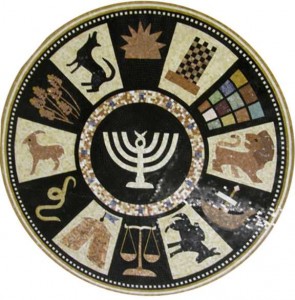Currently Browsing: Character of God
Jul 6, 2016
Posted by Scripture Solutions on Jul 6, 2016 | Comments Off on Need a foolproof map to guide your life?
“The simple believe anything, but the prudent give thought to their steps.”
Proverbs 14:15 NIV
פֶּ֭תִי יַאֲמִ֣ין לְכָל־דָּבָ֑ר וְ֝עָר֗וּם יָבִ֥ין לַאֲשֻׁרֹֽו׃
Picture a seasoned team of seamen with years of sailing experience making a blunder that practically shipwrecked their vessel. Remarkably, the 19th century polar expedition of the USS Jeannette, commandeered by Lieutenant George De Long ended in complete failure.
Captain De Long and his crew became thoroughly disoriented on their trek—not because of a faulty compass, but because of a mistaken map. De Long’s quest rested on a picture of the North Pole laid out in the maps of Dr. August Heinrich Petermann.
Petermann’s maps prop osed a “thermometric gateway” through the ice that opened onto a vast “polar sea” beyond the ice. As it turned out the ship was sailing to a world that didn’t exist.
osed a “thermometric gateway” through the ice that opened onto a vast “polar sea” beyond the ice. As it turned out the ship was sailing to a world that didn’t exist.
Rather than an open polar sea, the crew observed the perilous ice surrounding the ship. Immediately, the erroneous maps were scrapped and replaced with a comprehension of the way the Arctic truly is
Most readers conclude from this account Christians need a foolproof map from God to navigate His will.
Wrong!
I share this dramatic story to explain this is NOT how to identify God’s will.
The Lord does not have a hidden, faultless map to lead us to a treasure chest of priceless doubloons, aka His divine plan.
If there isn’t a GPS to steer us to the Lord’s will, what does Solomon in Proverbs 14:15 instruct us to do or not do to remove the mystery attached to “finding the will of God”. (more…)
Jun 21, 2016
Posted by Scripture Solutions on Jun 21, 2016 | Comments Off on Do You Think Before You Act or Just Act?
Proverbs 13:16
In everything the prudent acts with knowledge, but a fool flaunts his folly.
כָּל־ע֭֭רוּם יַעֲשֶׂ֣ה בְדָ֑עַת ו֝֝כְסִ֗יל יִפְרֹ֥שׂ אִוֶּֽלֶת׃
In a San Francisco Examiner (7/7/93) report the California State Automobile Association claims office received a package by Federal Express. The unknown contents were bundled in a Fruit Loops cereal box.
Workers quickly became suspicious. Security guards called the police, and about 400 office workers were evacuated from the building. The bomb squad soon arrived on the scene.
The Fruit Loops cereal box was “neutralized” with a small cannon, and its contents were blasted into the air. The bomb squad, however, found no explosives. Inside the suspicious package was $24,000 in cash. The box contained bundles of $20 bills, $1,000 of which were destroyed in the blast.
The response of the SF police was understandable. A suspicious package arrived that had to be dealt with. Only after the cereal box was neutralized was the identity of the contents determined.
In our world it is necessary to use caution, but acting without more thorough investigation can destroy things more valuable than money.
In Proverbs 13:16 Solomon contrasts the wisdom of taking time to think before one takes action with the foolishness of taking active steps without thinking through one’s options. (more…)
Jun 20, 2016
Posted by Scripture Solutions on Jun 20, 2016 | Comments Off on Proverbs for Living Skillfully
Automaker Henry Ford hired electrical genius Charlie Steinmetz to build the generators for his factory. One day the generators came grinding to a halt, and the technicians couldn’t find the problem. Ford called Steinmetz, who tinkered with the machines for a few hours and then threw the switch. The generators whirred to life–but Ford got a bill for $10,000 from Steinmetz. Flabbergasted, the rather tightfisted car maker inquired why the bill was so high.
Steinmetz’s reply: For tinkering with the generators, $10. For knowing where to tinker, $9,990. Ford paid the bill (Today in the Word, MBI, April 1990, p. 27.).
Today we place more value on our unproductive, frantic efforts than the wisdom involved in “knowing where to tinker.” After all, “knowing where to tinker” is more than a mere indicator of knowledge, but a sign of wisdom. Anyone can offer a reasonable guess regarding the nature of a problem we are facing. However, it takes wisdom to know how to apply that speculation and make a wise choice that leads to a resolve.
Nested in the midst of the books of Wisdom (Job, Psalms, Proverbs, Song of Solomon, Ecclesiastes) is a goldmine of biblical counsel for learning how to live skillfully. King Solomon’s Book of Proverbs is a much neglected biblical work that contains timeless truths that show us “where to tinker” in the major issues we face everyday.
One of the areas where followers of Jesus are forever tinkering in trying to determine God’s will. Christians spend precious time in this endless and often fruitless pursuit. Good news! The Book of Proverbs is God’s guidebook for finding His will. This is the major source in the Scriptures that reveals not merely the information about God’s will, but discloses “where to tinker.”
Once we have read and understood this work of wisdom, we will no longer need to speak of “discovering God’s will.” His plan for our lives becomes more apparent the deeper we dig within Solomon’s volume of wisdom.
Besides being a manual that enables us to understand the ways of God, the Book of Proverbs describes the qualities of spiritual character. As we will discover in Solomon’s sayings, possessing spiritual character goes hand-in-hand with grasping the will of God. (more…)
Nov 7, 2014
Posted by Scripture Solutions on Nov 7, 2014 | 2 comments
The question of forgiving one another has plagued me ever since I became a follower of Jesus. I heard many pastors and Bible teachers comment on this subject, but I did not feel they were teaching the message of the biblical text. Instead, what I was hearing was helpful common sense advice and psychological healthy ways to look at the way we should forgive one another.
Recently a good friend of mine whom I deeply respect, challenged me on my beliefs regarding the need for repentance as a condition for forgiveness.
Where I agree on this issue with my friend is that we both are in harmony that for a person to be reconciled with God, there must be a display of contriteness or repentance to experience the eternal forgiveness of God. This is designated “vertical forgiveness” because it takes place between man and God.

Forgive One Another
Where my friend and I disagree is whether or not repentance is necessary when we as humans forgive one another. If I offend another person, do I need to go to that person or have that person come to me so that I can confess my sin, state my intention to repent and ask for that person’s forgiveness?
My friend’s viewpoint is that we can forgive the other person through the forgiveness Jesus obtained for us through His death on the cross. The grace of God shown in the sacrificial death of Yeshua on the cross should so overwhelm us, that the natural outflow of our awe towards God’s love is to forgive others because God has shown His merciful forgiveness to us through His Son.
There is not always the need for repentance when there is “vertical forgiveness.” On the basis of the atonement we have in the Messiah, we forgive one another. with or without any display of repentance. In the Sermon on the Mount, in the Lord’s prayer in Matthew 6:12, we read, “And forgive us our debts, as we also have forgiven our debtors (NIV). (more…)
Mar 20, 2014
Posted by Scripture Solutions on Mar 20, 2014 | Comments Off on Not All Israel is Israel Part 2
To many students of the Bible Paul’s comment in Romans 9:6 that “not all who are descended from Israel are Israel” (NIV) sounds very strange. Is Paul saying the part of Israel that is “descended from Israel” is no longer part of the nation known as Israel? Then that would mean the only people who are actually Israelites are Jewish people who believe in Yeshua as Messiah and the “not all who are descended from Israel ” group are no longer members of the Jewish nation. Yet if you follow that logic, any examples of the NT apostles addressing the segment of the Jewish nation who have not accepted Yeshua as Messiah as still “Israel” makes no sense.
Check out these examples from the New Testament:
Acts 2:22: “Fellow Israelites, listen to this:
Acts 2:29: “Fellow Israelites, I can tell you confidently that the patriarch David died and was buried, and his tomb is here to this day.”
Acts 2: 36: “Therefore let all Israel be assured of this: God has made this Jesus, whom you crucified, both Lord and Messiah.”
Acts 3:12: “When Peter saw this, he said to them: “Fellow Israelites, why does this surprise you?”
Acts 3:17: “Now, fellow Israelites, I know that you acted in ignorance, as did your leaders.”
Acts 4:10: “then know this, you and all the people of Israel: It is by the name of Jesus Christ of Nazareth, whom you crucified but whom God raised from the dead, that this man stands before you healed.”
No wonder Christians are befuddled by Paul’s reference to two Israel’s in Romans 9:6.

Twelve Tribes of Israel
In light of Paul’s head-scratching use of the phrase, “”not all who are descended from Israel are Israel”, Christian theologians come up with explanations that confuse the issue even more.
My favorite explanation is the one that states unbelieving Israel has been replaced by the Church. This is called “replacement theology.” In this theological system, “Israel” that accepted Yeshua is none other than the Church. Rather than create clarity, Replacement Theology (aka disguised as Fulfillment Theology or Transformation Theology or Promise Theology) contributes more fuzzy thinking since the reader of the New Testament is forced to think “Church” when he reads the term “Israel”. Try to think “Church” in reading Romans 11:26, “and in this way all Israel will be saved.” Thanks, but no thanks. (more…)
 osed a “thermometric gateway” through the ice that opened onto a vast “polar sea” beyond the ice. As it turned out the ship was sailing to a world that didn’t exist.
osed a “thermometric gateway” through the ice that opened onto a vast “polar sea” beyond the ice. As it turned out the ship was sailing to a world that didn’t exist. 








